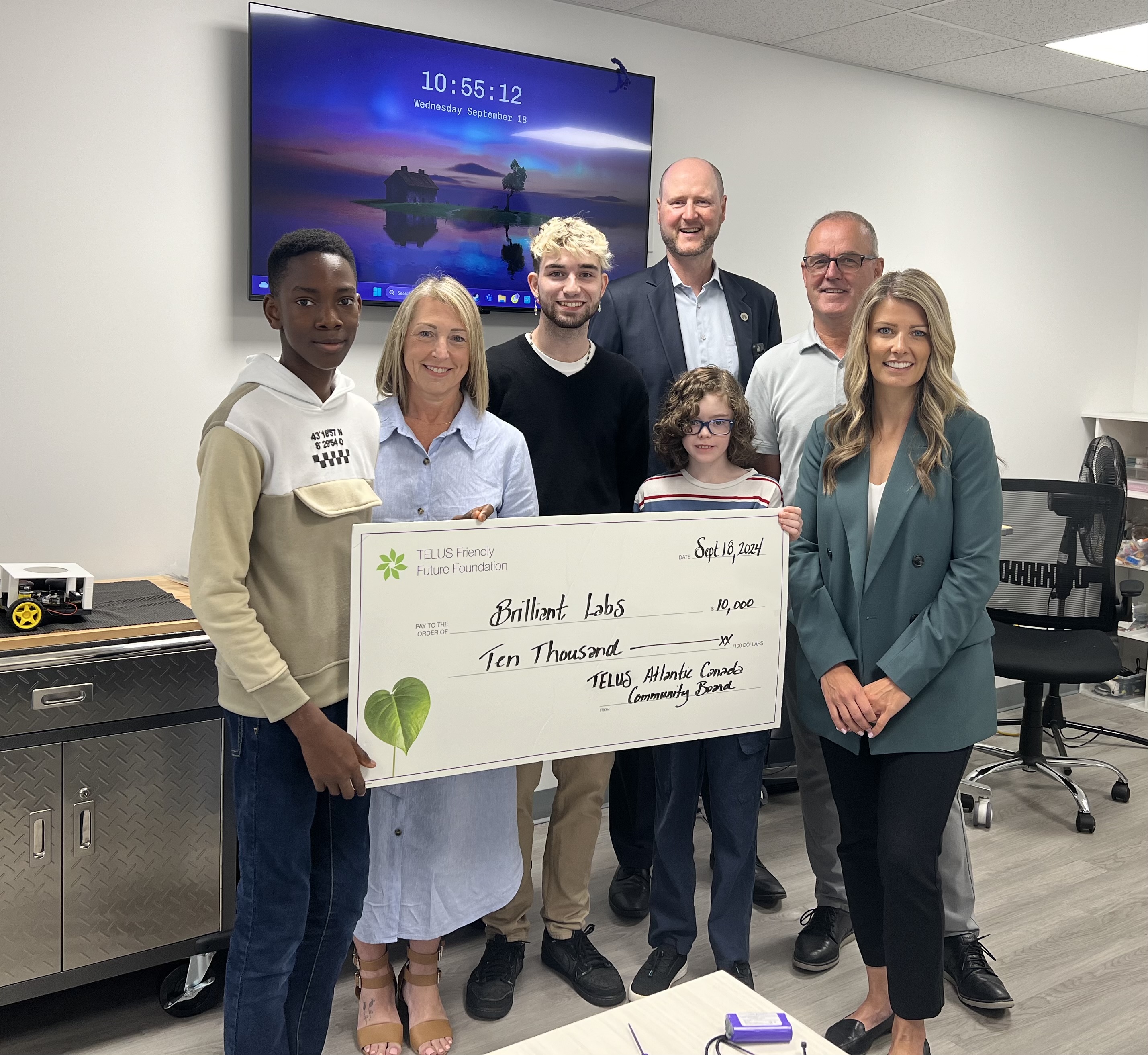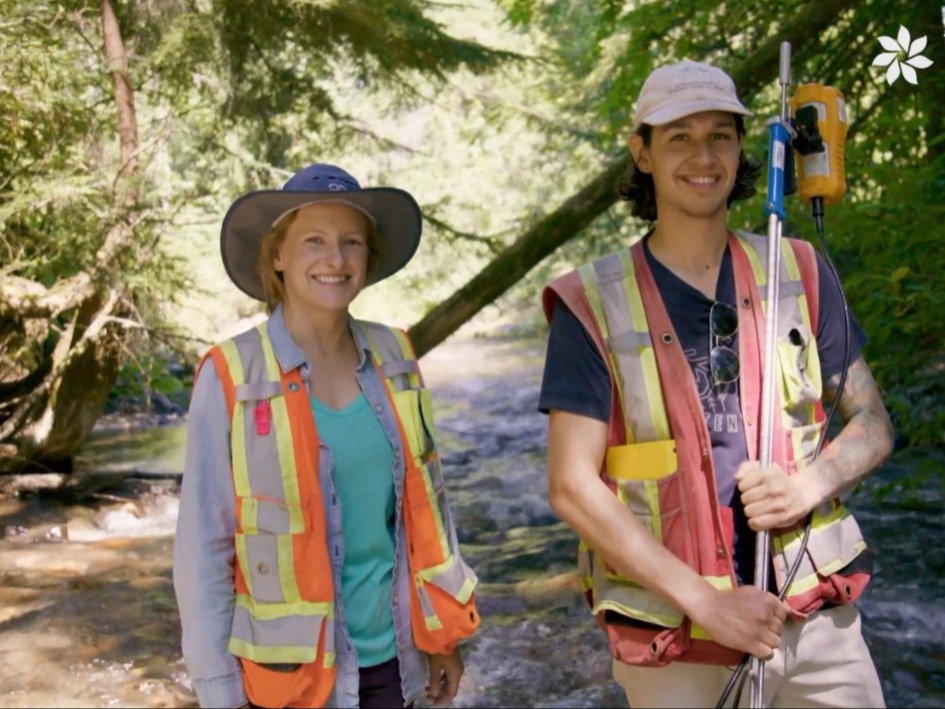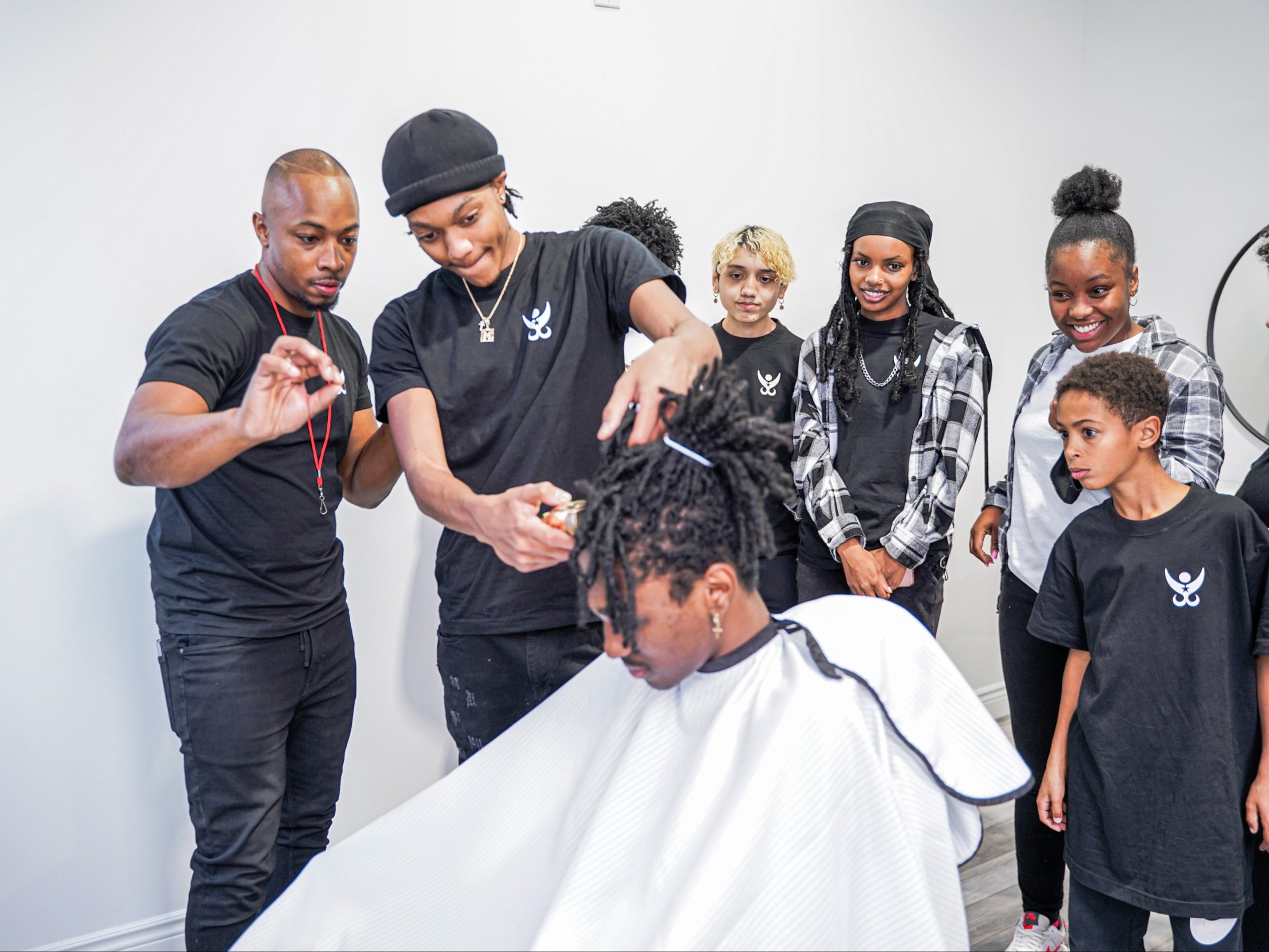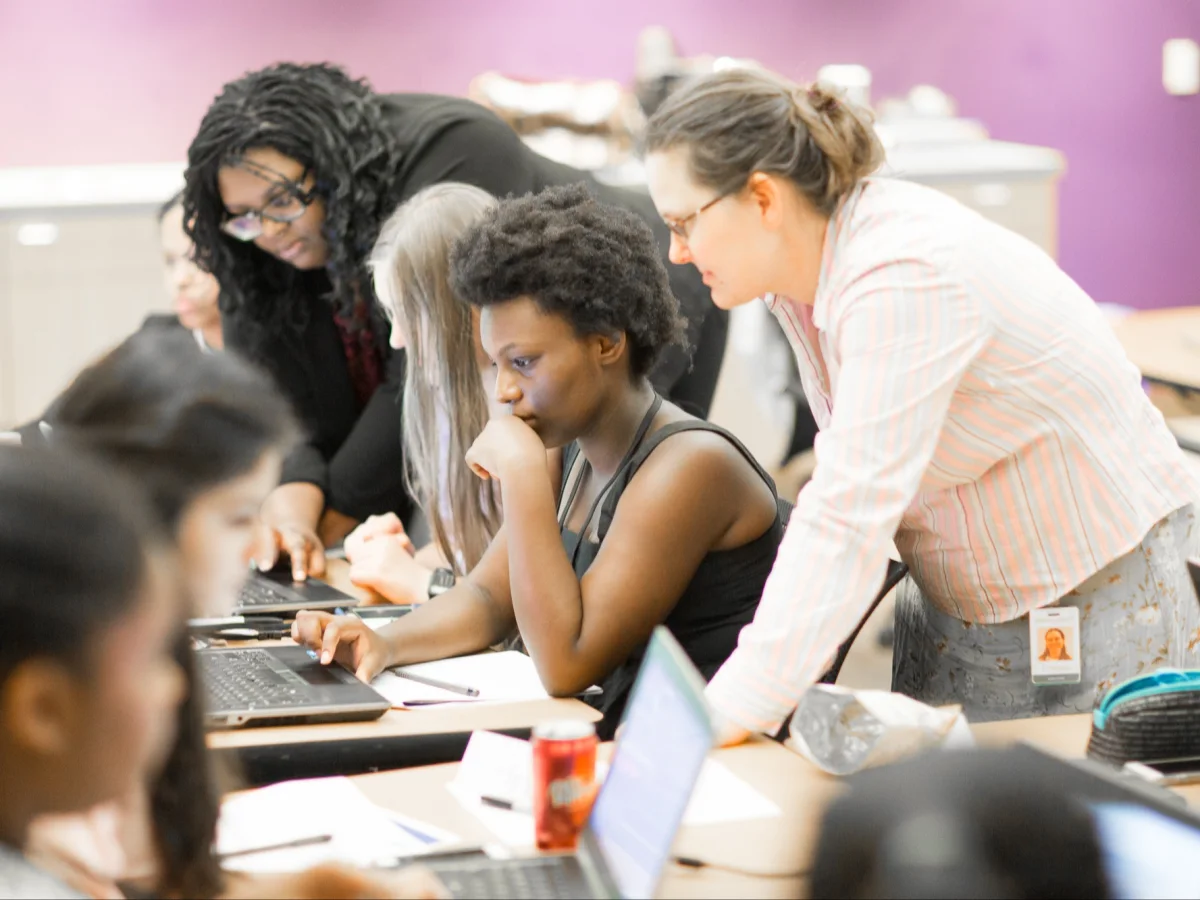
Education
Breaking down barriers in STEM
Jan 18, 2024
In a world driven by technological advancements, unfortunately, there is a lack of representation in fields at the forefront of these innovations. Underrepresentation of women, newcomers and Indigenous Peoples persist in STEM occupations (science, technology, engineering and mathematics) in Canada.
TELUS Friendly Future Foundation believes all youth, regardless of circumstance, deserve an equal opportunity to reach their full potential. Since our inception in 2018, we’ve funded a multitude of programs across the country in partnership with our TELUS Canadian Community Boards that are working toward reducing the imbalance in STEM careers. By exposing more female, newcomer and Indigenous youth to STEM in new, approachable ways, all young people, no matter their background, can see a future where they belong and can fully participate in these careers.
Here are a few organizations we’ve funded that are making STEM accessible to all:
- Sky’s the Limit Youth Organization
- Umoja Community Mosaic
- MindFuel
Sky’s the Limit Youth Organization
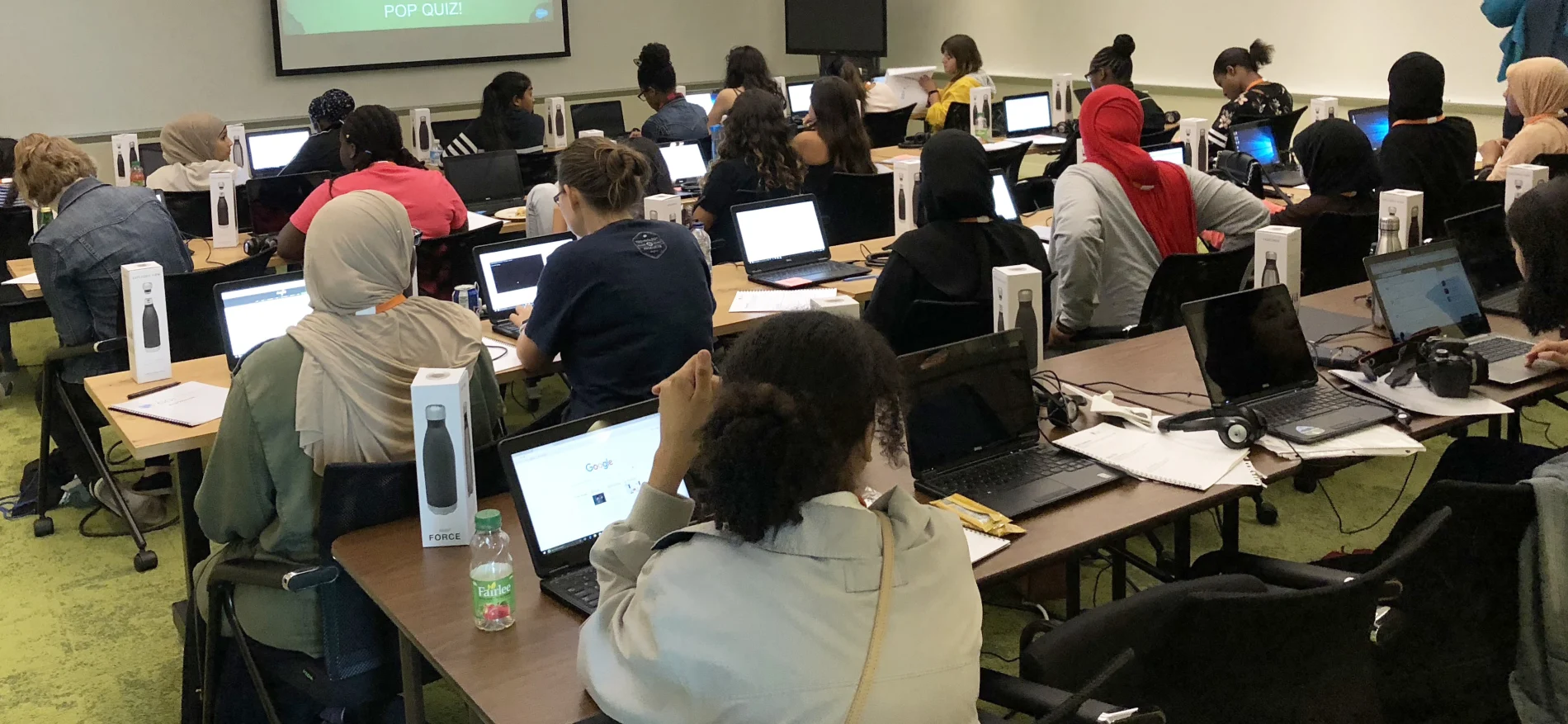
Canada’s technology industry is growing every year, and the demand for skilled workers is higher than ever. Despite making up 50% of the Canadian workforce,
women represent only 23% of STEM workers
, a number that has increased by only 2% in 30 years.Sky’s the Limit Youth Organization’s goal is to positively impact lives by educating and empowering youth in technology. They do this by working with their extensive network of community partners to open doors to new ways of learning, internships and career opportunities through their refurbished laptop deliveries and STEM camp programs.
Run by their partner organization, hEr VOLUTION, the Females in STEM Camp provides girls, aged 13-17, with an introduction to new technology and the careers available within them. Participants are exposed to female guest speakers working in technology fields who act as role models, provide hands-on learning and engage youth in dialogue to break down stereotypes and encourage females to pursue post-secondary education in STEM. To facilitate their learning, Sky’s The Limit equips participants with a refurbished laptop to work on during the program, and at the completion of each camp session, they can take it home.
“The laptop I received gives me access to reliable technology while allowing me to develop skills that I was introduced to in the Females in Stem Camp. It will allow me to help my community by gaining digital access and knowledge of computer programming such as javascript, HTML and CSS. Sky’s the Limit has provided me with new avenues for both my education and career advancement.”
- Youth participant, Females in STEM Camp, Sky’s the Limit
Umoja Community Mosaic
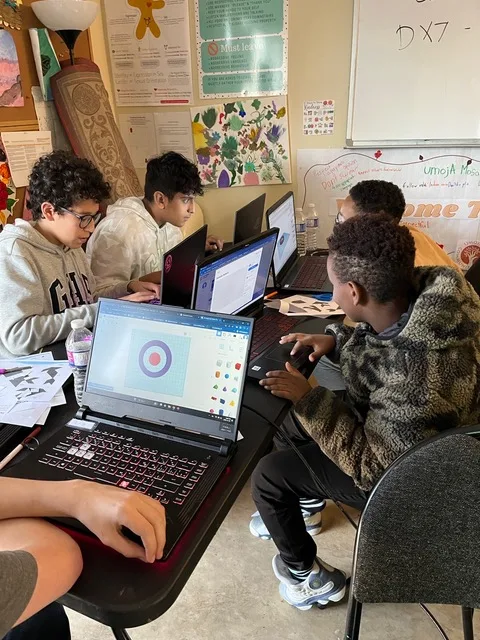
Representation matters. Diverse perspectives and experiences help fuel innovation. A workforce that reflects the diversity of our society leads to more inclusive research, technology and solutions that benefit us all. Umoja Community Mosaic (formerly Soccer Without Boundaries) programming works toward empowering youth from underserved communities through sport and education.
Umoja Mosaic’s STEM for Newcomers through their Thrive after-school program provides opportunities for newcomer youth to learn about and engage with STEM activities such as computer coding, math and creative science exploration. What separates this initiative from other after-school programs is that youth are being met where they’re at, with the resources and support needed to actively participate. The program is offered in public housing complexes where many of the youth participants reside, and it’s facilitated by staff and volunteers who speak more than 10 languages. By providing newcomer students with exposure to STEM learning in an inclusive and supportive environment, Umoja Community Mosaic is working toward incorporating diversification of thought and perspective in STEM.
MindFuel
We’ve heard from a number of our partner charities that youth who are exposed to STEM-based learning have the opportunity to develop new skills, build confidence and discover career paths they may not have considered before. This is especially true for Indigenous Peoples in Canada who are severely underrepresented in STEM-based careers.
According to a report by
The Conference Board of Canada
, less than 2% of people working in STEM occupations in Canada identify as Indigenous. Over the years, TELUS Friendly Future Foundation has funded many programs that introduce and engage Indigenous youth in STEM learning through summer camps, mentorship opportunities and informing educators how to work with Indigenous, Métis and First Nations youth in culturally appropriate ways.Partnering with Indigenous schools and community organizations, programs like MindFuel’s Tech Futures Challenge support youth in developing fundamental STEM knowledge while providing hands-on experience — sparking their interest and inspiring them to pursue STEM related studies and careers.
The program takes a two-pronged approach. MindFuel hosts learning workshops for teachers and community educators on how to build circuits, program microcontrollers, learn coding and other technologies in order to help lead youth activities. This is followed by in-person and virtual workshops for students in which Indigenous culture and ways of learning and doing are interwoven through guidance from community members and elders to promote multigenerational learning. As part of the program, MindFuel works directly with experienced mentors and STEM industry experts who assist with workshop design and delivery and provide youth mentoring. Many teachers have shared that their students not only develop their skills in coding and robotics, but also develop self-confidence, resilience, real-world problem-solving and new friendships through the program.
Inspiring underserved youth to discover new careers
TELUS Friendly Future Foundation supporters are helping to increase diversity of thought and representation in STEM across the country. Together, let’s continue empowering underrepresented groups so that they can see themselves belonging in STEM occupations, and contribute to a future of innovation that benefits us all.
